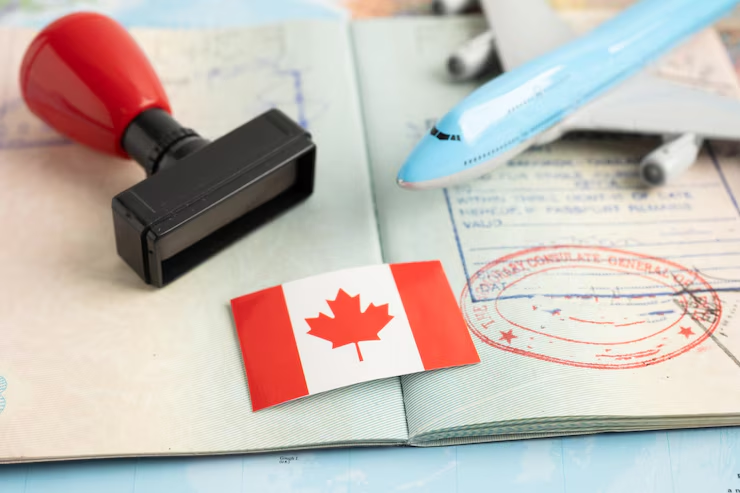In the ever-evolving world of international travel, the strength of a passport can significantly impact how easily one can traverse the globe. According to the latest Global Passport Ranking report from Henley & Partners, a London-based firm specializing in global citizenship and residence planning, Canada’s passport ranks 24th globally in terms of visa-free access. This position places Canada below 23 other nations but still holds a prominent place in the Americas. In this blog post, we’ll delve into the details of Canada’s passport ranking, the factors influencing its standing, and what this means for Canadian travelers. Canada Global Passport Ranking
Current Passport Rankings: An Overview
As of the latest update, Canadian passport holders can travel to 187 out of 227 countries without a visa. This represents a slight decline from earlier reports where Canadians enjoyed visa-free access to 188 countries. To put this in perspective, Canada is now ranked 24th, alongside Czechia, Hungary, and Malta, for the number of visa-free destinations available. Despite this slight drop, Canada remains the leader in the Americas in terms of visa-free access, surpassing other countries in the region. Canada Global Passport Ranking

The Evolution of Canada’s Passport Power
The Global Passport Ranking report is an essential tool for understanding the global mobility of passport holders. The report from January listed Canadians as having visa-free access to 188 countries, positioning them below 25 other nations. However, this report is no longer available on Henley & Partners’ website. The most recent data from early 2023 showed Canadians with access to 185 countries visa-free. The current report reflects a net loss of one visa-free country compared to January. Canada Global Passport Ranking
Key Changes in Visa-Free Access:
Brazil:
Once a country requiring visas from Canadians, Brazil lifted its visa requirement starting June 17, 2019, under former President Jair Bolsonaro. However, the current Brazilian government, led by President Luiz Inácio Lula da Silva, announced plans to reinstate visa requirements for Canadians starting April 2024. Despite this, the implementation has been delayed to April 10, 2025, making Brazil a visa-free destination for Canadians in the interim.
Togo and Gabon:
Recent changes have seen both countries now requiring visas from Canadian travelers. The reasons behind these shifts were not immediately clear but reflect the dynamic nature of international visa policies.
Comparing Canada’s Passport Strength
Canada vs. Other Nations:
- Singapore: Topping the list, Singaporeans enjoy visa-free access to 195 countries, the highest number globally. This represents an increase from early 2023, when Singapore was tied for second place with South Korea, having access to 192 countries.
- Japan: Japan, previously leading with visa-free access to 193 countries, is now tied for second place with Singapore, South Korea, France, Germany, Italy, and Spain, all offering access to 192 destinations.
- Austria, Finland, Ireland, Luxembourg, Netherlands, South Korea, and Sweden: These countries share seventh place, with visa-free access to 191 countries.
- Belgium, Denmark, New Zealand, Norway, Switzerland, and the United Kingdom: These nations are tied for 14th place, providing access to 190 countries.
- Australia and Portugal: Both countries allow their citizens visa-free travel to 189 destinations, placing them in 20th position.
Canada’s Position in the Americas
In the context of the Americas, Canada holds a leading position for visa-free access. No other country in the region offers as many visa-free destinations as Canada. The United States, for instance, is ranked 28th, with visa-free access to 186 countries, which is significantly lower compared to Canada’s position.
Factors Influencing Passport Strength
The strength of a passport is influenced by various factors, including:
Diplomatic Relations:
Strong diplomatic ties with other countries often lead to more favorable visa arrangements. Countries with robust diplomatic networks can negotiate better visa-free agreements.
Economic Stability:
A stable and prosperous economy can enhance a country’s passport strength. Economic stability often correlates with better diplomatic relations and international influence.
Global Influence:
Countries with significant global influence and engagement are more likely to have strong passports. This influence can stem from economic power, political stability, and active participation in international organizations.
Historical and Cultural Ties:
Long-standing historical relationships and cultural connections can impact visa arrangements. Countries with historical ties to many regions often enjoy better travel freedom.
Implications for Canadian Travelers

Travel Freedom:
Despite a slight drop in ranking, Canadian passport holders still benefit from significant travel freedom. The ability to visit 187 destinations without a visa provides a high degree of flexibility for personal, business, and leisure travel.
Business and Trade Opportunities:
A strong passport supports international business by facilitating easier travel to global markets. Canadian entrepreneurs and companies can engage in international trade and investment with relative ease.
Tourism and Exploration:
Canadian travelers can explore a wide range of global destinations, enriching their travel experiences. Visa-free access simplifies travel arrangements, allowing for more spontaneous and diverse travel plans.
Educational and Professional Opportunities:
The ability to travel without a visa supports international education and career opportunities. Canadian students and professionals can access global opportunities more easily, fostering personal and professional growth.
Challenges and Considerations
While Canada’s passport remains strong, there are challenges to consider:
Entry Requirements:
Visa-free access does not guarantee entry. Travelers must still meet entry requirements such as proof of sufficient funds, return tickets, and accommodation details.
Changing Visa Policies:
Visa policies are subject to change based on evolving international relations and security concerns. Travelers should stay informed about the latest visa requirements and travel advisories to avoid disruptions.
Security Concerns:
Travelers should adhere to security advisories and follow travel safety guidelines issued by their home country and destination.
Conclusion: Canada’s passport, while ranked 24th globally with visa-free access to 187 destinations, continues to be a powerful tool for international travel. Despite a slight decline from previous reports, Canadian travelers enjoy a high degree of mobility compared to many other countries. The strength of Canada’s passport reflects its strong diplomatic ties, economic stability, and global influence.

Understanding the dynamics of passport rankings and their impact on travel can enhance global mobility and create opportunities for both personal and professional endeavors. As international travel evolves, the strength of passports like Canada’s will remain a key factor in shaping global interactions and opportunities.
Disclaimer
This blog post is intended for informational purposes only and reflects the status of visa-free access as of the latest Global Passport Ranking report. Visa requirements and passport rankings are subject to change due to evolving international agreements and diplomatic relations. Travelers should consult official sources or relevant consular authorities for the most current and accurate information before making travel plans. The information provided here should not be considered as legal or travel advice.
Get Free Expert Advice: Are you ready to embark on your next adventure? Whether you’re seeking a work permit, tourist visa, or study opportunities in Canada or other countries, we’re here to help! Contact us today to learn how our expert services can simplify your journey and turn your dreams into reality. Reach out now and let’s start planning your future together!
- Discover Canada’s Updated CRS Score System: Easier Access to Permanent Residency
- Canada’s New Immigration Policy: Ending ‘Flagpoling’ for Post-Graduation Work Permits
- Canada’s New Policy: How the Ban on Border Applications Affects International Students’ Work Permits
Also read:
- Latest IRCC Processing Times for March 2025 – Major Updates Revealed
- New Canada Immigration Fees Effective December 1, 2024
- Canada’s 2024 Wildfire Relief Measures for Foreign Nationals
- Your Canadian Immigration Journey: 10 Strategies to Raise Your CRS Score
- Work in Canada: Secure Your Work Permit with MS Overseas Consultant







